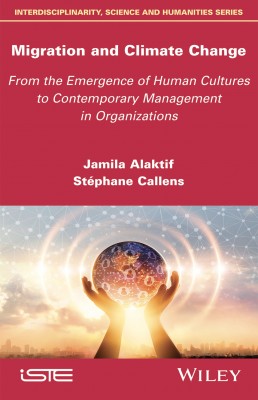
This book aims to provide a better understanding of how human cultures interact with climate change over an extended period of time.
It is an analysis of the past and present, ranging from the first human migration to contemporary organizational management using an approach developed by Michel Foucault, defined as: the research, the practice, the experience, by which the subject operates on themselves the transformations necessary in order to have access to the truth.
This book consists of two parts. The first part focuses on climate change and the substantial effects it had on the first human cultures. The second part explores the role of organizations and the development of new frameworks for action in more recent times of anthropogenic climate change.
Part 1. The First Cultures in a Context of High Climate Instability
1. Migration and Creativity: What Roles do They Play During Climate Change?
2. Living with the Extreme.
3. The Great Historical Transitions of Climate Cultures.
Part 2. Contemporary Cultures and Climate Change
4. Norms and Diversity in Climate Change.
5. Organization, Climate and Sustainable Development.
6. Climate and Religion in Protectionism.
Jamila Alaktif is a Professor of Organizational Behavior. Her research focuses on corporate social responsibility, cultural diversity and the integration of ethnic minorities in the labor market. She has received a fellowship from the France-Stanford Center for Interdisciplinary Studies at Stanford University, USA.
Stéphane Callens is a Professor of Economics at Artois University, France. His research examines major risks, innovation and health and he has published research on the outcome of patients following the Haitian earthquake and the health crisis in Sahel, Africa.